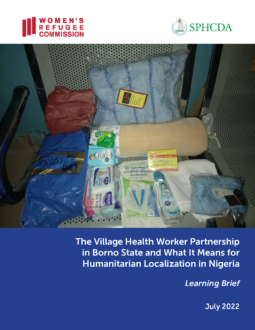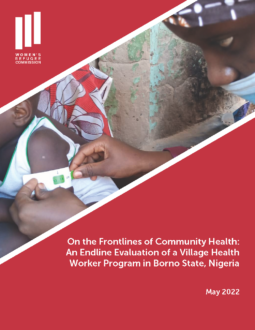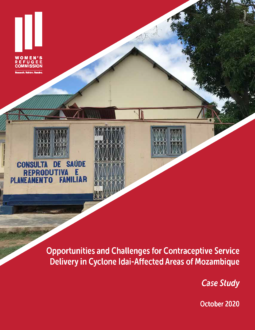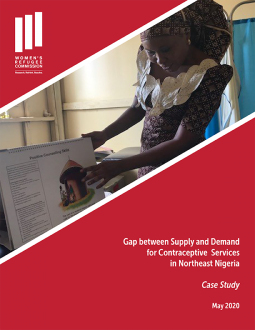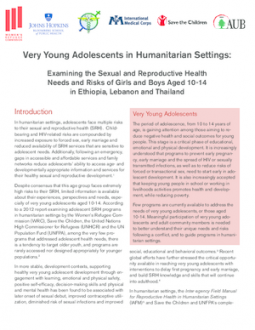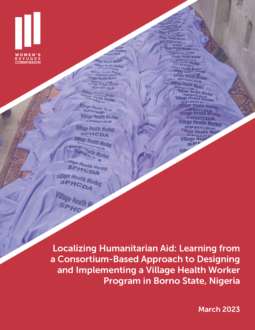
Localizing Humanitarian Aid: Learning from a Consortium-Based Approach to Designing and Implementing a Village Health Worker Program in Borno State, Nigeria
PublishedFrom 2017-2021, the Women’s Refugee Commission (WRC) partnered with the government of Borno State, Nigeria, and other local partners to design and implement an integrated package of community and primary health interventions to strengthen delivery of reproductive, maternal, newborn, child, and adolescent health and nutrition (RMNCAHN) services. To drive long-term sustainability of the program and advance the humanitarian sector’s commitments to localizing humanitarian response, the project team intentionally designed a collaborative localized approach to implement the project.
With funding from the Bill & Melinda Gates Foundation, WRC provided sub-grants to the Borno State government to lead implementation of programming and to local nongovernmental organizations (NGOs) to support the government, while WRC provided “behind-the-scenes” coordination, grant management, and programmatic support. This brief synthesizes findings from the localized consortium-based approach, including successes, challenges, and recommendations, based on an external evaluation and WRC’s internal reflections and learning. The humanitarian sector can build on this learning to advance effective, sustainable, and equitable localization of humanitarian aid.


